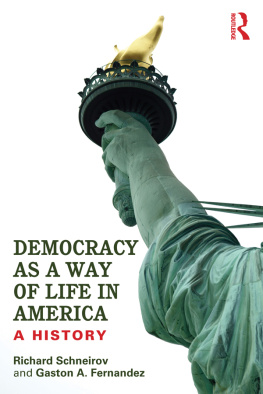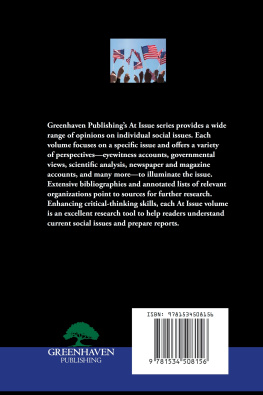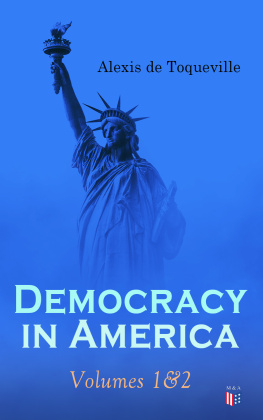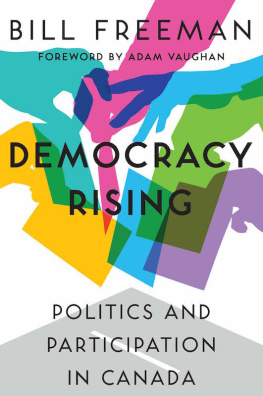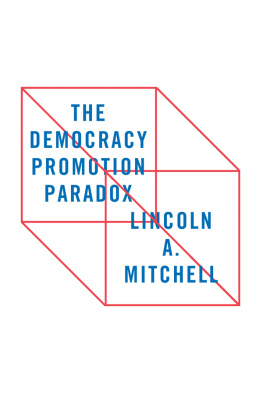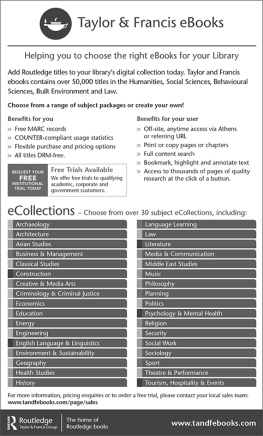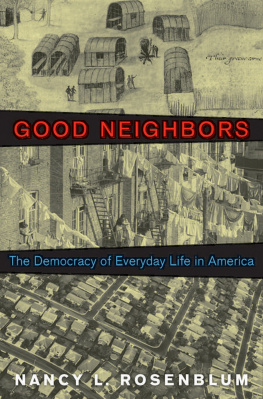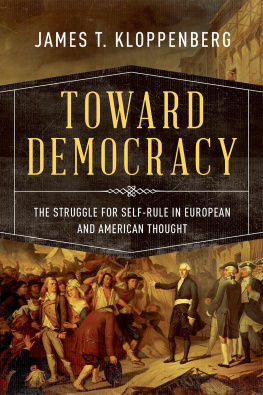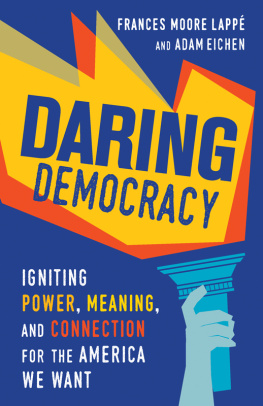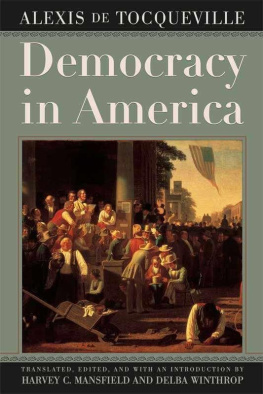Democracy as A Way of Life in America
The United States is a nation whose identity is defined by the idea of democracy. Yet democracy in the United States is often taken for granted, narrowly understood, and rarely critically examined. In Democracy as a Way of Life in America, Schneirov and Fernandez show that, much more than a static legacy from the past, democracy is a living process that informs all aspects of American life.
The authors trace the story of American democracy from the American Revolution to the present, showing how democracy has changed over time and the challenges it has faced. They examine themes such as individualism, foreign policy, the economy, and the environment and reveal how democracy has been deeply involved in these throughout the countrys history.
Democracy as a Way of Life in America demonstrates that democracy is not simply a set of institutions or practices, such as the right to vote or competing political parties, but a complex, multidimensional phenomenon, whose animating spirit can be found in every part of American culture and society. This vital and engaging narrative should be read by students of history, political science, and anyone who wants to understand the nature of American democracy.
Richard Schneirov is Professor of History at Indiana State University. He is the author of many books, including Chicago in the Age of Capital: Class, Politics, and Democracy during the Civil War and Reconstruction with John B. Jentz.
Gaston A. Fernandez is Professor of Political Science at Indiana State University.
Democracy as A Way of Life in America
A History
Richard Schneirov and Gaston A. Fernandez
First published 2014
by Routledge
711 Third Avenue, New York, NY 10017
Simultaneously published in the UK
by Routledge
2 Park Square, Milton Park, Abingdon, Oxon OX14 4RN
Routledge is an imprint of the Taylor & Francis Group, an informa business
2014 Taylor & Francis
The right of Richard Schneirov and Gaston A. Fernandez to be identified as authors of this work has been asserted by them in accordance with sections 77 and 78 of the Copyright, Designs and Patents Act 1988.
All rights reserved. No part of this book may be reprinted or reproduced or utilized in any form or by any electronic, mechanical, or other means, now known or hereafter invented, including photocopying and recording, or in any information storage or retrieval system, without permission in writing from the publishers.
Trademark Notice: Product or corporate names may be trademarks or registered trademarks, and are used only for identification and explanation without intent to infringe.
Library of Congress Cataloging-in-Publication Data
Schneirov, Richard.
Democracy as a way of life in America : a history / Richard Schneirov and Gaston A. Fernandez.
pages cm.
Includes bibliographical references.
1. DemocracyUnited States. 2. United StatesPolitics and government. I. Fernandez, Gaston A. II. Title.
JK1726.S36 2013
320.973dc23
2013013840
ISBN: 978-0-415-83611-1 (hbk)
ISBN: 978-0-415-83612-8 (pbk)
ISBN: 978-0-203-36197-9 (ebk)
To the Unfinished Task Remaining for Future Generations of Americans: Democracy
Contents
Every effort has been made to cite the original source material for each work compiled in this collection. In the event that something has been inadvertently used or cited incorrectly, every effort will be made in subsequent editions to rectify the error.
John Dewey, Creative Democracy: The Task before Us, in The Essential Dewey, vol. 1, Pragmatism, Education, Democracy (Bloomington: Indiana University Press, 1998), 34043. Reprinted by permission of the publisher.
Preamble to the US Declaration of Independence (July 4, 1776). National Archives and Records Administration. Accessed at: http://www.archives.gov/exhibits/charters/
declaration_transcript.html.
Womens Rights Convention, Seneca Falls, Declaration of Sentiments. (1848). Accessed at: http://www.csus.edu/owl/index/read/sacbee/sen_dec.htm.
Abraham Lincoln, Gettysburg Address, 1863. Accessed at: http://www.abrahamlincolnonline.org/
lincoln/speeches/gettysburg.htm.
US Strike Commission, Report on the Chicago Strike of JuneJuly, 1894 (Washington, D.C.: Government Printing Office, 1894), XLVIIXLVIII.
Franklin Delano Roosevelt, State of the Union Message to Congress, January 11, 1944. Franklin D. Roosevelt Presidential Library and Museum. Accessed at: http://www.fdrlibrary.marist.edu/
archives/address_text.html.
Lyndon B. Johnson, Commencement Address at Howard University, June 4, 1965, in Public Papers of the Presidents of the United States: Lyndon B. Johnson, 1965, vol. II, entry 301 (Washington, D.C.: Government Printing Office, 1966), 63540. Accessed at: http://www.lbjlib.utexas.edu/johnson/archives.hom/speeches.hom/650604.asp.
Stokely Carmichael, Student Nonviolent Coordinating Committee Position Paper: The Basis of Black Power (1966) Accessed at: http://www2.iath.virginia.edu/sixties/HTML_docs/Resources/Primary/Manifestos/SNCC_black_power.html.
Ronald Franklin Inglehart, Postmaterialism. Encyclopedia Britannica Online. Accessed at: http://www.britannica.com/EBchecked/topic/1286234/postmaterialism. Reprinted by permission.
2012 Republican Platform. Accessed at: http://www.gop.com/2012-republican-platform_home/.
Declaration of the Occupation of New York City, Occupy Wall Street, New York City General Assembly, September 29, 2011. Accessed at: http://www.nycga.net/resources/documents/declaration/.
Democracy as a Way of Life
The idea of democracy is a wider and fuller idea than can be exemplified in the state even at its best. To be realized it must affect all modes of human association, the family, the school, industry, religion.
John Dewey, The Public and Its Problems (1927)
Most Americans take democracy as an accomplished fact, an inheritance from the founders that is beyond dispute. It is not something most Americans think about. It is just who we are. Democracy is, in this view, something finished, a static entity. The counterpart of this unexamined attitude is the belief among many of our pundits that democracy is simply the name of our political system, whose central value, rule of the people, is an inconvenient but necessary reality that one must work around. Democracy is merely a means to the end of good policy. Though we hear phrases today of a crisis in democracy, it almost always means the political system is not producing the outcomes that these political observers or leaders desire.
This book is written as a dissent from both standpoints. Democracy in our view cannot be taken for granted or regarded as something finished. Democracy must be seen as a potential and a trend capable of being stymied and reversed, as well as liberated and accelerated. Moreover, democracy should be viewed as existing in degrees rather than in an all-or-nothing state. The United States is only partially democratic. At all times, democratic and antidemocratic forces have contended with each other, and democracy has waxed and waned in American history. Democracy has always been a question. As the American philosopher John Dewey has put it, it is the task before us (see Documents).
We also believe that democracy is not simply a means to some desirable end, whether that is good government, the right kind of market regulation, environmental protection, or international competitiveness. It is an end in itself, an ideal worth striving for, and a faith for guiding future action.

